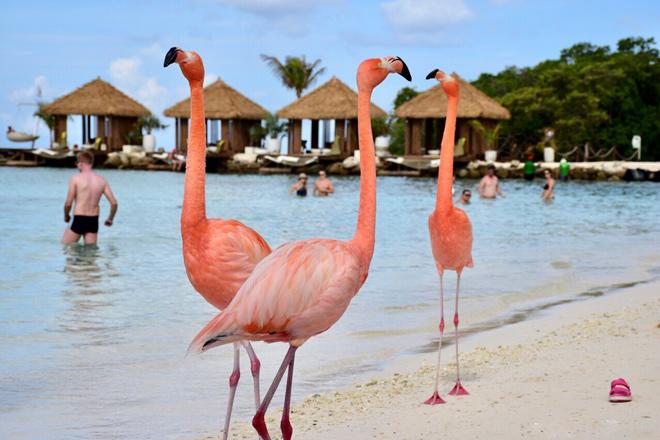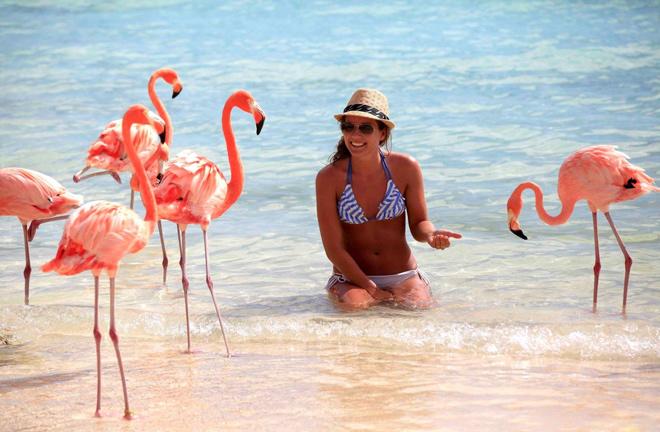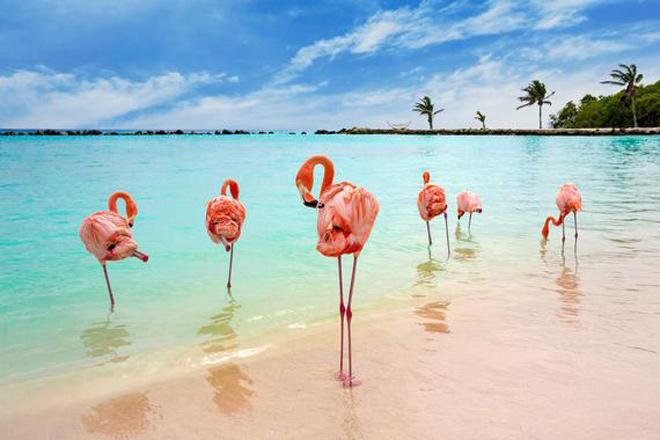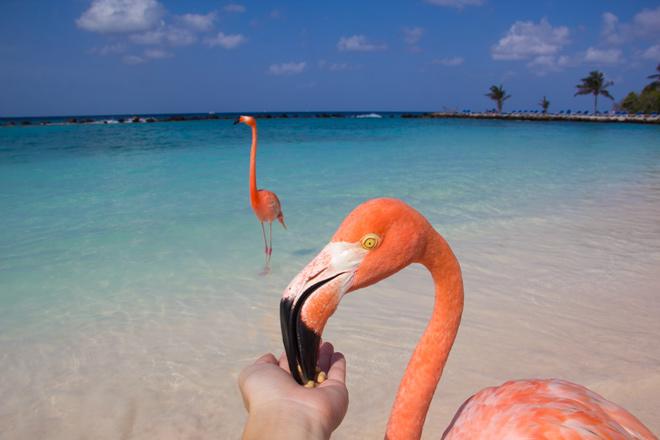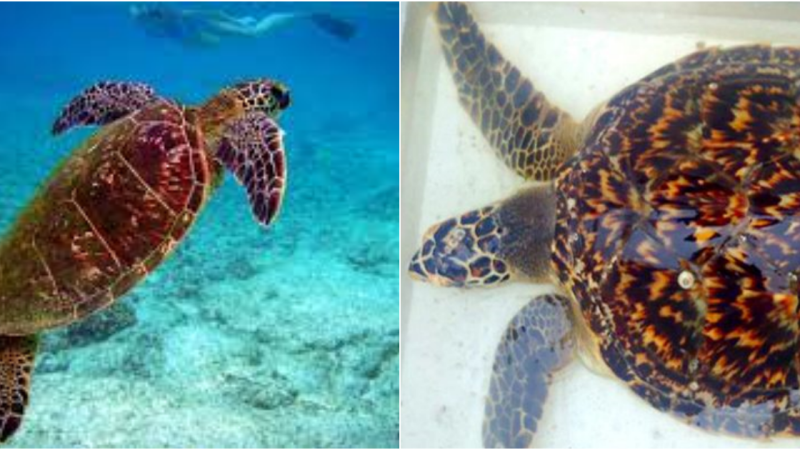Flamingo Beach: A Captivating Luxury Destination for Wanderlust Travelers
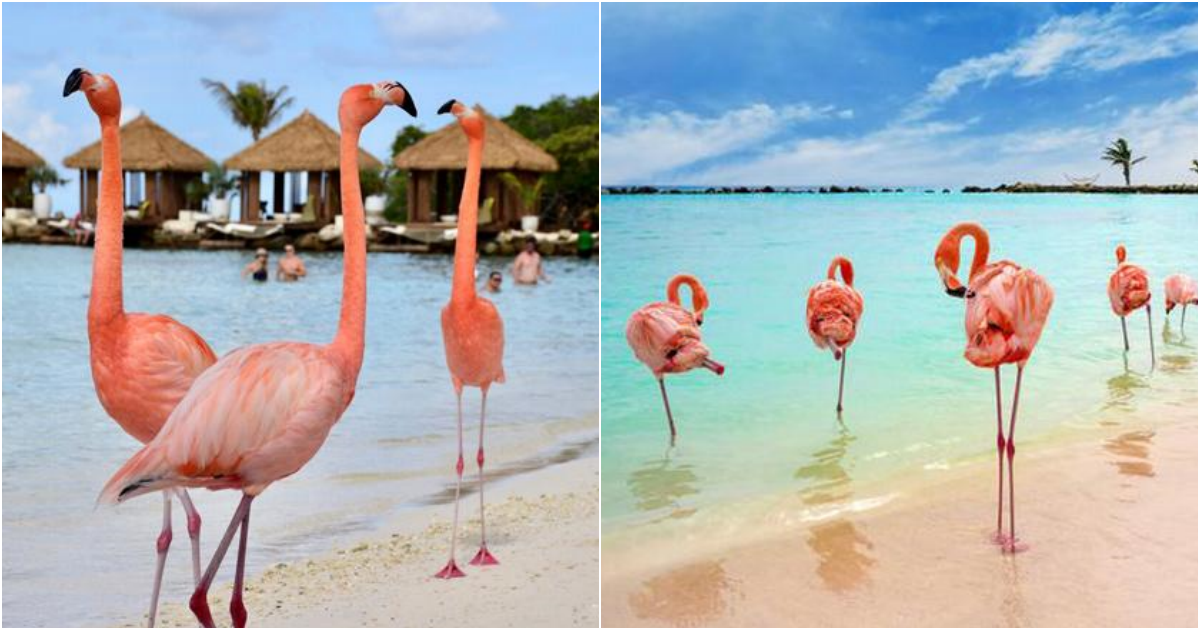
In recent years, a remarkable phenomenon has taken the world of tourism by storm as young people from all corners of the globe flock to experience the luxurious allure of Flamingo Beach. Nestled on Renaissance Island in the northern Caribbean Sea, this idyllic paradise has become synonymous with its charming flamingo inhabitants. With crystal-clear waters and powdery white sand no longer the sole draw for tourists, the sight of these majestic creatures has become a must-see attraction. However, amidst the popularity, concerns have been raised regarding the impact of human interaction on the natural lives of these vibrant pink birds.
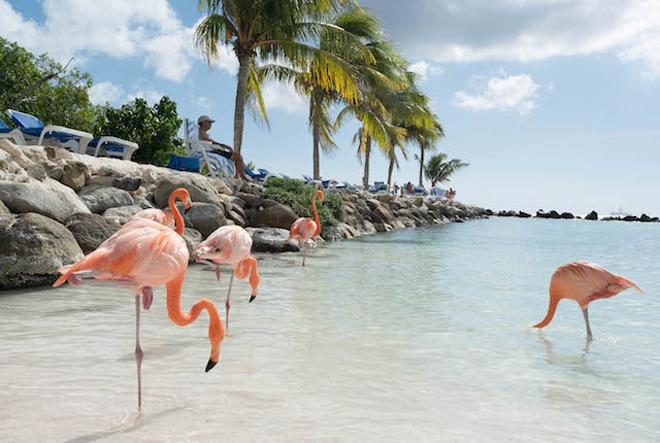
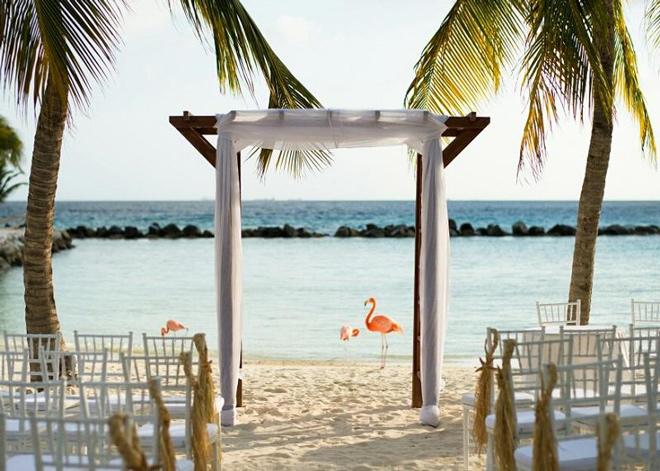 At Flamingo Beach, visitors are greeted by a vibrant and breathtaking spectacle. The flamingos, renowned for their striking pink plumage and long, graceful legs, can be seen leisurely strolling through the water, creating a picturesque scene. Their presence throughout the day allows visitors ample opportunities to capture stunning photographs and memorable check-in moments.
At Flamingo Beach, visitors are greeted by a vibrant and breathtaking spectacle. The flamingos, renowned for their striking pink plumage and long, graceful legs, can be seen leisurely strolling through the water, creating a picturesque scene. Their presence throughout the day allows visitors ample opportunities to capture stunning photographs and memorable check-in moments.  What sets Flamingo Beach apart from other tourist destinations is the unique camaraderie shared between the flamingos and visitors. The birds have grown accustomed to the human presence and exhibit a remarkable friendliness, creating an immersive and interactive experience. Renaissance Aruba Island hotels actively encourage guests to feed the flamingos, fostering a sense of connection between the two species.
What sets Flamingo Beach apart from other tourist destinations is the unique camaraderie shared between the flamingos and visitors. The birds have grown accustomed to the human presence and exhibit a remarkable friendliness, creating an immersive and interactive experience. Renaissance Aruba Island hotels actively encourage guests to feed the flamingos, fostering a sense of connection between the two species. 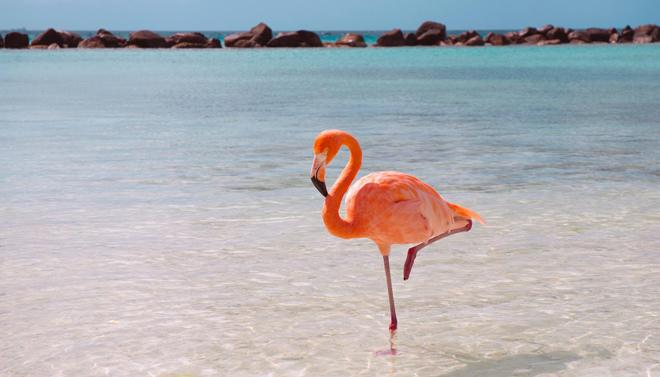 While the allure of interacting with these magnificent creatures is undeniably tempting, concerns have been raised by animal rights groups. They advocate for the preservation of the flamingos’ natural way of life and urge visitors to refrain from direct contact. It is vital to remember that these birds are wild animals, and excessive human interaction may disrupt their natural behaviors and habits.
While the allure of interacting with these magnificent creatures is undeniably tempting, concerns have been raised by animal rights groups. They advocate for the preservation of the flamingos’ natural way of life and urge visitors to refrain from direct contact. It is vital to remember that these birds are wild animals, and excessive human interaction may disrupt their natural behaviors and habits. 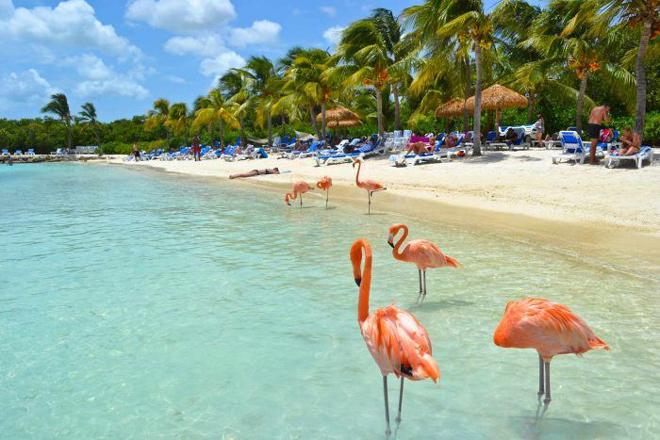 Flamingo Beach on Renaissance Island has emerged as a captivating luxury destination, where travelers seek not only pristine waters and sandy shores but also the enchanting presence of the vibrant pink flamingos. This unique coexistence between humans and wildlife has drawn visitors from around the world, who are captivated by the opportunity to observe and engage with these majestic creatures. However, as we indulge in this extraordinary experience, it is crucial to prioritize the preservation of their natural habitat and respect their wild nature, ensuring that future generations can continue to appreciate the beauty of Flamingo Beach.
Flamingo Beach on Renaissance Island has emerged as a captivating luxury destination, where travelers seek not only pristine waters and sandy shores but also the enchanting presence of the vibrant pink flamingos. This unique coexistence between humans and wildlife has drawn visitors from around the world, who are captivated by the opportunity to observe and engage with these majestic creatures. However, as we indulge in this extraordinary experience, it is crucial to prioritize the preservation of their natural habitat and respect their wild nature, ensuring that future generations can continue to appreciate the beauty of Flamingo Beach. 